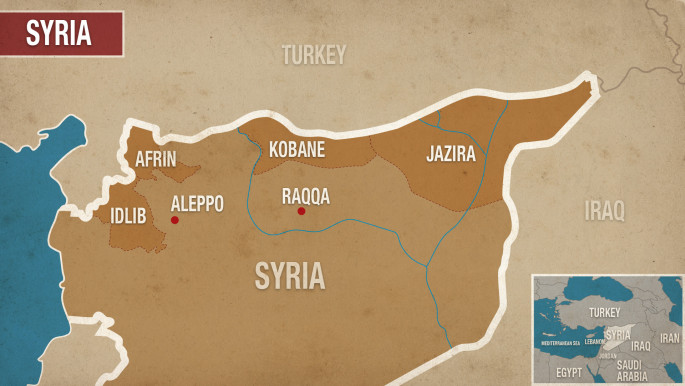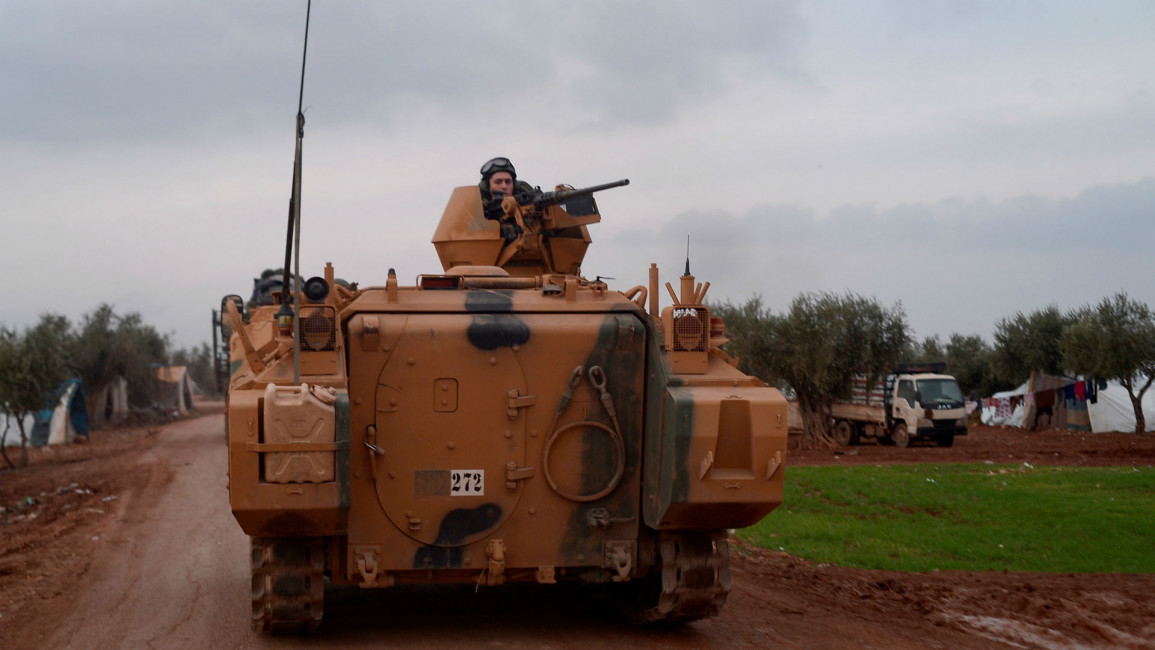Erdogan: Turkey will not step back from Afrin operation
As the UN announced a closed-doors meeting about the new Turkish offensive in the northern Syrian, Erdogan claimed he has the support of Security Council member Russia.
"We are determined. Afrin will be sorted out. We will take no step back. We spoke about this with our Russian friends. We have an agreement," Erdogan told a televised meeting in Ankara.
It comments from Washington that the US was in touch with Turkey prior to the start of "Operation Olive Branch" in northern Syria.
US Defence Secretary Jim Mattis said that Ankara gave Washington a "heads up" before Saturday's assault and sympathised that Turkey was "unique" among NATO partners in having legitimate security concerns within its borders.
Turkey alleges that the Syrian-Kurdish People's Protection Units (YPG) militia - which occupies territories around Afrin - is connected to the banned Turkish-Kurdish Kurdistan Workers' Party armed group, which has fought an ongoing insurgency with Ankara since the 1080s.
Ankara says the intention of its operations in northern Syria is to secure its southern border and prevent the YPG from opening a "terror corridor" between Afrin and Kurdish-held territories to the east.
'Operation Olive Branch'
Turkish armed forces shelled more Kurdish militia targets in Syria on Monday - the third day of "Operation Olive Branch".
The offensive is Turkey's second major incursion into Syrian territory during the seven-year civil war.
Turkish war planes and artillery are backing a major ground incursion launched with Ankara-backed Syrian rebels and Turkish armour to oust the YPG militia from its enclave of Afrin.
The operation is highly sensitive as Washington relied on the YPG to oust Islamic State (IS) militants from their Syrian strongholds and the Kurdish militia now holds much of Syria's north.
France has called for a UN Security Council meeting Monday to discuss concerns over flashpoint areas in Syria including the Turkish offensive.
'Cleaning up'
Turkish television quoted military sources as saying the ground forces had already taken 11 villages in their advance into Syria.
 |
|
"The cleaning up is taking place step-by-step," was the headline in the pro-government Yeni Safak daily.
Meanwhile, Turkish artillery were firing shells on YPG targets inside Syria on the third day of the offensive.
The Britain-based Syrian Observatory for Human Rights said a total of 21 civilians - including six children - had been killed in the operation.
Ankara has denied inflicting civilian casualties, with Foreign Minister Mevlut Cavusoglu accusing the YPG of sending out "nonsense propaganda and baseless lies".
The YPG also said it had been preventing the Turkish advance with fierce resistance but this has not been confirmed by Ankara.
"God willing, this operation will be finished in a very short time," President Recep Tayyip Erdogan told supporters Sunday. "We will not take a step back."
Turkish Deputy Prime Minister Mehmet Simsek said the operation would be short and would not have a negative effect on the economy.
"Investors should be calm," he said. "This will be an effective, and limited operation and, God willing, it will be short."
In a sign of the risks to Turkey, 11 rockets fired from Syria hit the Turkish border town of Reyhanli Sunday, killing one Syrian refugee and wounding 46 people, 16 of them Syrian, the local governor said.
US urges restraint
As well as a complex military task, Turkey has to wage a sensitive diplomatic campaign to avoid alienating allies and provoking foes.
Western capitals are particularly concerned that the campaign against the YPG will take the focus away from eliminating IS after a string of successes in recent months.
In its first reaction, the US State Department urged Turkey "to exercise restraint" and ensure the operation remained "limited in scope".
US Defence Secretary Jim Mattis said Turkey had been "candid" and had provided Washington with advance warning of its operation.
Meanwhile Russia and Iran - who have a military presence in Syria and are working with Turkey on a peace process - have also expressed concern.
The Iranian foreign ministry said Tehran was closely watching the operation and expressed hope it would end immediately "so as to prevent the deepening of the crisis in northern Syria."
The Russian foreign ministry voiced concern and urged Turkey to show restraint, while the defence ministry said its troops were withdrawing from the Afrin area to ensure their security and prevent any "provocation".
Agencies contributed to this story.


![President Pezeshkian has denounced Israel's attacks on Lebanon [Getty]](/sites/default/files/styles/image_684x385/public/2173482924.jpeg?h=a5f2f23a&itok=q3evVtko)



 Follow the Middle East's top stories in English at The New Arab on Google News
Follow the Middle East's top stories in English at The New Arab on Google News


